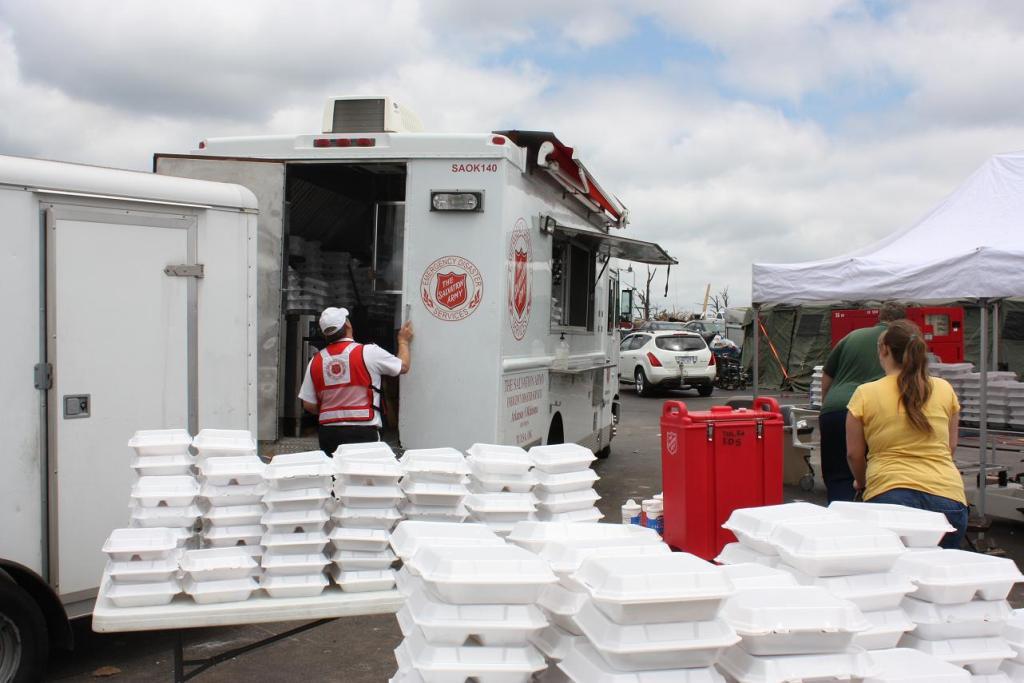Listen to this article
Listen to this article
Loading
Play
Pause
Options
0:00
-:--
1x
Playback Speed- 0.5
- 0.6
- 0.7
- 0.8
- 0.9
- 1
- 1.1
- 1.2
- 1.3
- 1.5
- 2
Audio Language
- English
- French
- German
- Italian
- Spanish
Open text
sharper focus. our identity is our strength. by s. e. horwood, captain –. over the past few years i have used this column to remind readers of the salvation army’s work around the world, and to alert them to our potential as a leader in reaching every person on the planet with the gospel. this aspect of potential impact is a great concern for me, and one that needs to stay before readers of new frontier. i submit that it should be a driving force for all salvationists. the army is uniquely and powerfully poised in the body of christ and in societies around the world; few organizations have the depth and history in local communities, and the respect of local and national leaders as we do. additionally, few organizations focus on both church planting (evangelism) and humanitarian aid (social services). few organizations have over one million christians worshipping together around the world on any saturday (as in bangladesh) or sunday, who have committed themselves to preach, witness and serve for the expressed purpose of bringing salvation to the world (i.e. salvation army mission statement). there are churches that have more people, but are focused on traditional evangelical ministries. and there are very large and prominent christian organizations that provide humanitarian aid around the world. but this unique combination is what sets the army apart and gives us our strength. i function on the basis that god’s mission is to extend his rule to all of his creation. in essence, he wants all people to come to knowledge of him (1 tim. 2:4), and worship him alone. this has been his mission for 4,000 years. ever since his covenant with abram (gen. 12:2-3), he has been working with the “faith community” (decedents of abraham) to bring people to himself and restore the fellowship he had with his penultimate creation. he first used the children of israel, whom he called “my treasured possession,” “a kingdom of priests” and a “holy nation” (ex. 19:5). they were to be a light among the nations. through them the nations of the world would see yahweh as the god of all gods. but today, the church functions in that role. the body of christ is “the chosen people, a royal priesthood, a holy nation.” (1 peter 2:9). it is our responsibility to be a light to the nations in this generation. it is our obligation to bring the message of his amazing grace to the roughly two-thirds of the population who do not worship the one and true god. but how do we do this when we’ve reached the closest and easiest? how do we minister to those who have already rejected him, or have no access to a church-planting ministry? we must be ourselves! our ministry is a tradition of holiness that is expressed through preaching and service. traditional evangelical preaching, open air ministries, bible studies, and so on, will not work among a population that is neither inclined to enter a place of worship nor where christianity is illegal. but through relationship and service in christ’s name, the gospel can be expressed. this is the ministry of international development work, and this we do exceptionally well, albeit under the radar of most salvationists. they already have churches in villages in africa and asia, where hiv/aids is ravaging the population. yet hiv is being spread at alarming rates. what is making a difference in those communities is not another church, but a ministry that authentically works with each segment of society to help them address the issues. working in this way, i’ve had village chiefs invite the army to start a congregation, “because you don’t look like all the other churches; you really want to help us.”. today, eighty percent of those who have not ever heard the gospel will never hear the gospel until there are those who will go as servants first, and allow god’s love and grace to be seen through them. no amount of radio/tv broadcasts, literature or crusade preaching will reach them. they need humble servants willing to look and minister differently. i believe the church is looking at the army and waiting for us to step up in an even greater way.
Open context player
Close context player
Plays:-Audio plays count
sharper focus. our identity is our strength. by s. e. horwood, captain –. over the past few years i have used this column to remind readers of the salvation army’s work around the world, and to alert them to our potential as a leader in reaching every person on the planet with the gospel. this aspect of potential impact is a great concern for me, and one that needs to stay before readers of new frontier. i submit that it should be a driving force for all salvationists. the army is uniquely and powerfully poised in the body of christ and in societies around the world; few organizations have the depth and history in local communities, and the respect of local and national leaders as we do. additionally, few organizations focus on both church planting (evangelism) and humanitarian aid (social services). few organizations have over one million christians worshipping together around the world on any saturday (as in bangladesh) or sunday, who have committed themselves to preach, witness and serve for the expressed purpose of bringing salvation to the world (i.e. salvation army mission statement). there are churches that have more people, but are focused on traditional evangelical ministries. and there are very large and prominent christian organizations that provide humanitarian aid around the world. but this unique combination is what sets the army apart and gives us our strength. i function on the basis that god’s mission is to extend his rule to all of his creation. in essence, he wants all people to come to knowledge of him (1 tim. 2:4), and worship him alone. this has been his mission for 4,000 years. ever since his covenant with abram (gen. 12:2-3), he has been working with the “faith community” (decedents of abraham) to bring people to himself and restore the fellowship he had with his penultimate creation. he first used the children of israel, whom he called “my treasured possession,” “a kingdom of priests” and a “holy nation” (ex. 19:5). they were to be a light among the nations. through them the nations of the world would see yahweh as the god of all gods. but today, the church functions in that role. the body of christ is “the chosen people, a royal priesthood, a holy nation.” (1 peter 2:9). it is our responsibility to be a light to the nations in this generation. it is our obligation to bring the message of his amazing grace to the roughly two-thirds of the population who do not worship the one and true god. but how do we do this when we’ve reached the closest and easiest? how do we minister to those who have already rejected him, or have no access to a church-planting ministry? we must be ourselves! our ministry is a tradition of holiness that is expressed through preaching and service. traditional evangelical preaching, open air ministries, bible studies, and so on, will not work among a population that is neither inclined to enter a place of worship nor where christianity is illegal. but through relationship and service in christ’s name, the gospel can be expressed. this is the ministry of international development work, and this we do exceptionally well, albeit under the radar of most salvationists. they already have churches in villages in africa and asia, where hiv/aids is ravaging the population. yet hiv is being spread at alarming rates. what is making a difference in those communities is not another church, but a ministry that authentically works with each segment of society to help them address the issues. working in this way, i’ve had village chiefs invite the army to start a congregation, “because you don’t look like all the other churches; you really want to help us.”. today, eighty percent of those who have not ever heard the gospel will never hear the gospel until there are those who will go as servants first, and allow god’s love and grace to be seen through them. no amount of radio/tv broadcasts, literature or crusade preaching will reach them. they need humble servants willing to look and minister differently. i believe the church is looking at the army and waiting for us to step up in an even greater way.
Listen to this article











 Over the past few years I have used this column to remind readers of The Salvation Army’s work around the world, and to alert them to our potential as a leader in reaching every person on the planet with the gospel. This aspect of potential impact is a great concern for me, and one that needs to stay before readers of New Frontier. I submit that it should be a driving force for all Salvationists.
Over the past few years I have used this column to remind readers of The Salvation Army’s work around the world, and to alert them to our potential as a leader in reaching every person on the planet with the gospel. This aspect of potential impact is a great concern for me, and one that needs to stay before readers of New Frontier. I submit that it should be a driving force for all Salvationists.
